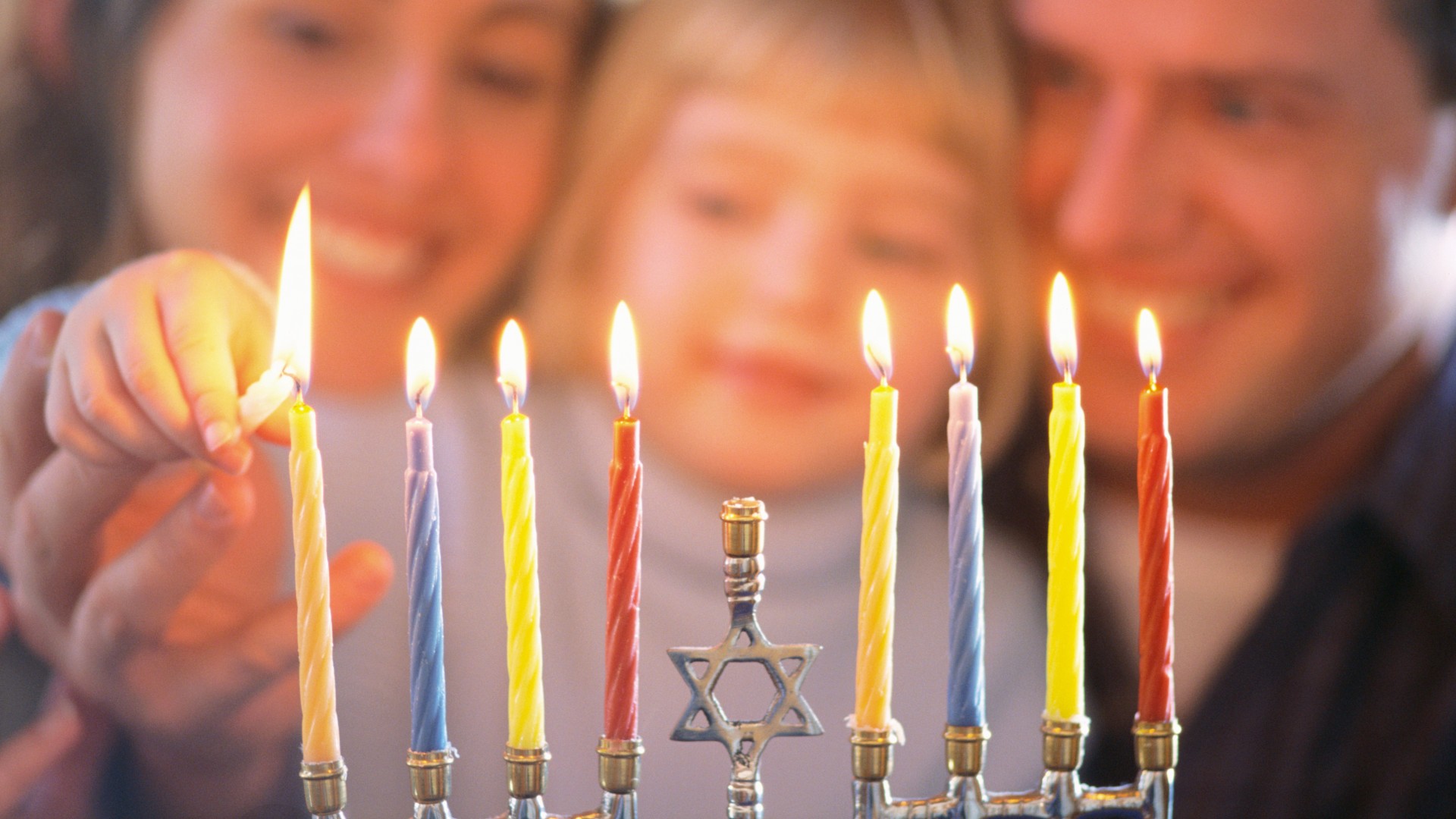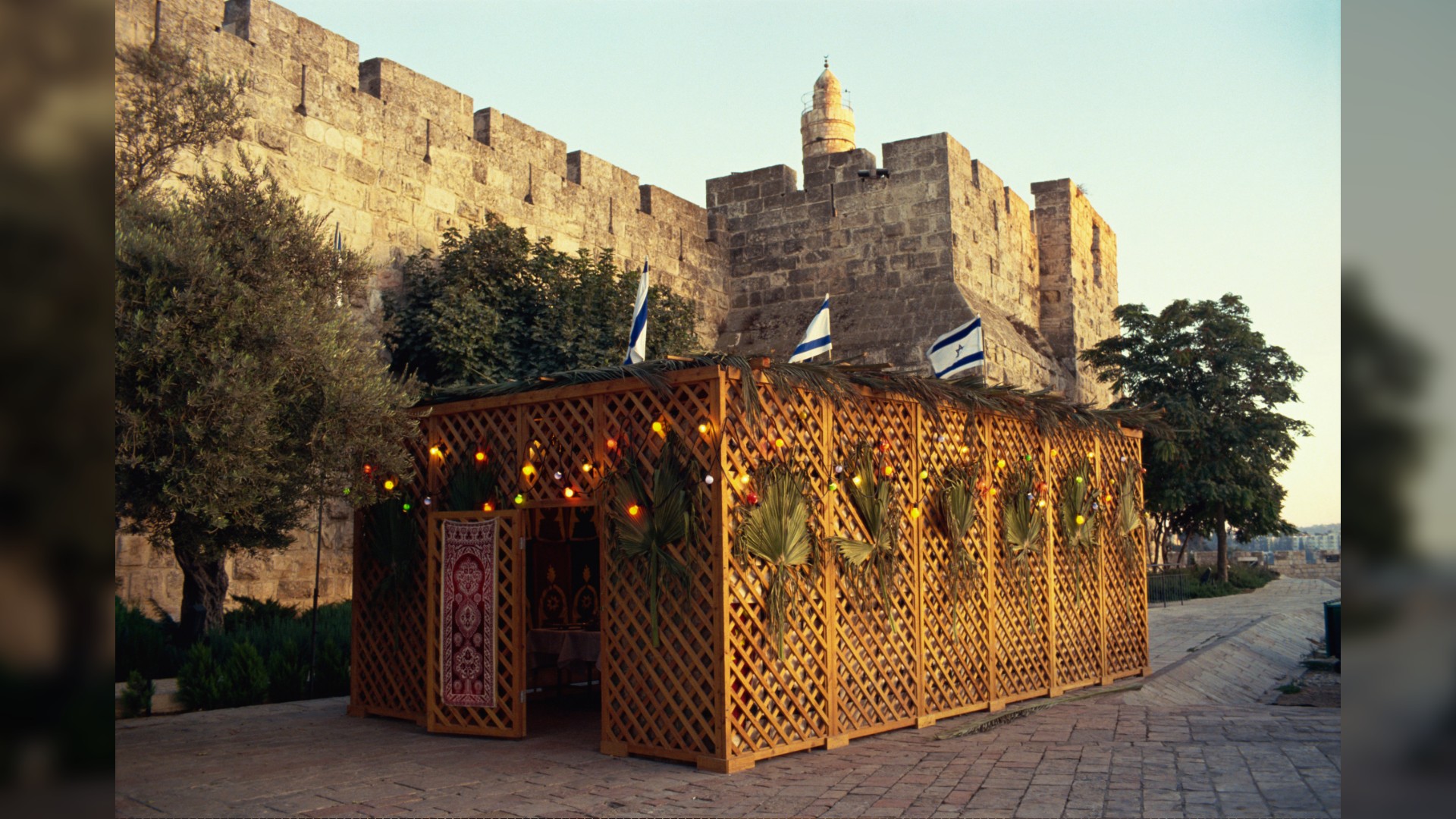
Why is Hanukkah 8 days?
Is Hanukkah eight days because of an ancient miracle that oil burned for that long? It turns out there's more to the story.

The Jewish festival of Hanukkah — also spelled Chanukah — is a celebration that happens around the middle of winter each year. But why is it eight days long?
The most commonly heard explanation is that the eight days commemorate a miracle in which a small amount of oil burned not for one but eight days. However, this is actually not the original reason that Hanukkah lasts for so long, a scholar of Jewish history told Live Science.
But no matter the explanation, Hanukkah has always lasted eight days, even the first year it was celebrated in ancient times.
Related: Was the 'forbidden fruit' in the Garden of Eden really an apple?
The word "Hanukkah" derives from the Hebrew verb "to dedicate." The festival was established in 163 B.C. when a Jewish revolt led by warriors known as the Maccabees succeeded in liberating Jerusalem from the Seleucid Empire. The Selucid ruler, Antiochus IV Epiphanes, had outlawed Jewish practices and installed an altar to Zeus in the Temple in Jerusalem, sacrificing pigs there.
Historical sources state that Hannukah was instituted to commemorate the ritual purification and re-dedication of the temple, which allowed Jewish worship to resume there. But just why Hanukkah is eight days long is complex.
The usual explanation is the "miracle of the cruse of oil." (A cruse is a container.)
Sign up for the Live Science daily newsletter now
Get the world’s most fascinating discoveries delivered straight to your inbox.
According to this legend, the "eternal flame" in the temple, which was supposed to burn continuously, had gone out while the Selucids controlled the city.
After the Seleucids were expelled from Jerusalem, it's said the Maccabees searched for oil to light the temple flame; but they could only find a single cruse of religiously pure oil — enough to fuel the flame for one day.
When the temple flame was lit from the single cruse of oil, however, it miraculously lasted eight days — just long enough to complete the religious purification process and make more oil, the legend relates.
According to some traditions, these are the eight days commemorated by Hanukkah.
The association of this story with the eight days of Hanukkah is strengthened by the ritual of lighting candles on the nine-branched candlestick known as a Hanukkah menorah, or hanukkiah, that brightens many Jewish homes during the holiday. Each main branch of the candlestick represents one day of Hanukkah, while a ninth candle — the helper candle, or "shamash" in Hebrew — is used to light the others.
But David Kraemer, a professor of the Talmud and Rabbinics at the Jewish Theological Seminary in New York City, notes that the story of the miracle of oil was only written down several hundred years after Hanukkah was instituted; Instead, it seems to date from between about A.D. 100 to 600, when the collection of Jewish teachings known as the Talmud was written down, although much of it was based on earlier traditions.

As such, the story of the miracle of oil doesn't seem to have been known until that time; and the historical sources make clear that the first Hanukkah lasted for eight days so that the important Jewish harvest holiday of Sukkot could be observed, he said.
Related: What's the world's oldest civilization?
Sukkot also lasts eight days (or seven days in some Jewish traditions) and usually takes place in September or October, but it couldn't be observed in the year that the Maccabees liberated Jerusalem; and so Hanukkah was established to allow it to take place, Kraemer said.
"What they did was when they re-purified the temple, they celebrated Sukkot," Kraemer told Live Science. "Originally, the eight days come from the fact that Hanukkah was a belated observance of Sukkot."
According to the Jewish religious calendar, Hanukkah begins on the 25th day of the month of Kislev and continues until the second day of the month of Teslev — a date known as Zos Chanukah that is particularly holy.
The Jewish months, however, are based on a luni-solar calendar and move around compared with the calendar used in most countries, which is based on the Gregorian calendar introduced in 1582 by Pope Gregory XIII (itself a modification to the Julian calendar introduced in 46 B.C. by the Roman leader Julius Caesar.)
The result is that the dates of Hanukkah also move around; and while the start of Hanukkah is often near Christmas on Dec. 25, it can also be as early as Thanksgiving (the last "Thanksgivukkah" was in 2013 and the next will be in 2070) or as late as Dec. 27.
In 2022, Hanukkah will begin on Sunday, Dec 18; and it will end on Dec. 26.
Tom Metcalfe is a freelance journalist and regular Live Science contributor who is based in London in the United Kingdom. Tom writes mainly about science, space, archaeology, the Earth and the oceans. He has also written for the BBC, NBC News, National Geographic, Scientific American, Air & Space, and many others.









